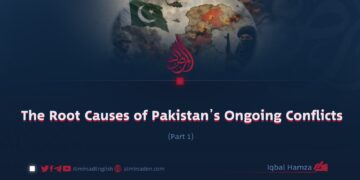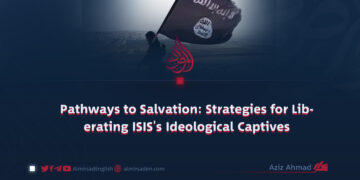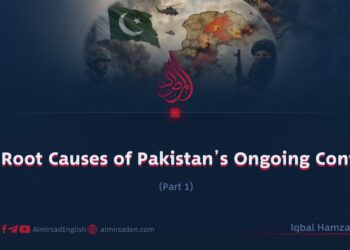Part 3
Author: Aslam Khorasani
The Shared Ideology of ISIS and the Modern Taghut
Afghanistan has long stood as the cradle of heroic resistance and extraordinary sacrifices—deeds so profound that no ideology can erase them, nor will history ever allow them to fade into obscurity. In the modern era, the world has been astonished by the unyielding courage of the sons of this land, so much so that the very possibility of such valor and sacrifice defies belief.
Throughout history, many tyrants have set their sights on this land. Venomous gazes have been cast upon it, and countless attempts have been made to conquer and claim it. Yet, time and again, history has proven that Afghanistan is unconquerable. It has humbled the mightiest empires of every age and will continue to serve as a graveyard for would-be oppressors.
It is against this formidable historical and ideological backdrop that the so-called Islamic State – Khorasan Province (IS-K) emerged, aligning itself with modern tyrannical powers (taghut) in an effort to destabilize this steadfast nation. Seeking both ideological solidarity and support from external forces, ISIS-K attempted to implant its savage and deviant doctrines into Afghan soil.
But their folly lies in the fundamental misjudgment of this land and its people. Afghanistan is inextricably bound to religious conviction and the pure guidance of Islam. Its spiritual and cultural fabric is so deeply rooted in the love of Islamic teachings and governance that no foreign ideology—no matter how aggressive or well-funded—can sever this connection.
Functioning more like a geopolitical project than a grassroots movement, ISIS-K launched limited military operations in remote, uninhabited areas, spreading corruption and strife. Yet, their true identity and sinister objectives were swiftly uncovered. The people, guided by clarity of faith and wisdom, recognized the deviation in their path and rejected their ideology outright.
In truth, the sacred soil of Afghanistan is not and will never be fertile ground for alien ideologies. This nation’s Islamic heritage is too rich, too resilient, to accommodate the seeds of extremism sown by ISIS and its ideological affiliates.
Faced with military defeat at the hands of local communities and regional forces—and having observed that the Afghan people had wholeheartedly embraced a just Islamic system—ISIS-K shifted its strategy. Abandoning direct confrontation, the group adopted a more covert approach: ideological subversion.
Acting in concert with modern taghut forces, ISIS attempted to wage a new kind of war—one fought not on the battlefield, but in the minds of the people. However, this strategy, too, failed. In today’s Afghanistan, scholars and intellectuals—particularly the righteous ulema—play a crucial and influential role. These defenders of faith rose with firm resolve, confronting the intellectual and militant assault of ISIS with clarity, courage, and conviction.
Their response was so resolute that it rekindled memories of past military victories over occupiers in the minds of this land’s enemies. A glance at Afghanistan’s history reveals a consistent truth: whenever scholars have stood shoulder-to-shoulder with the youth in the struggle for justice, no oppressor—regardless of their strength or arsenal—has been able to triumph.
The leadership of Afghanistan’s scholars in this intellectual and spiritual battle has dealt devastating blows to the enemies of Islam. They have uprooted both the ideological foundations and physical presence of ISIS from this land. Yet ISIS, blinded by ambition and ignorant of history, persists in its doomed efforts—forgetting the fates of all the imperial forces that have tried and failed to conquer Afghanistan before them.
This savage group, by setting foot in Afghanistan—a land where every speck of soil has been soaked in the blood of martyrs—will meet its destined end. The widespread support of the people for the just Islamic system will never allow space for ISIS and their ideological allies who seek a foothold in this land.



















































